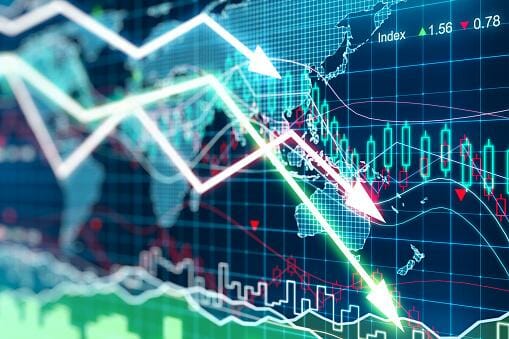The stock market has had one of the worst starts this year in history, with major stock indices experiencing a massive decline not seen for many decades. The turbulent financial environment triggered a snowball effect where all asset classes, not just stocks, faced negative repercussions.
Naturally, financial analysts and professionals have expressed concerns over an impending recession for the past few months. However, we might already be in a recession, or to be exact, we might already be coming out of a recession that clouded the previous two quarters of 2022.
Nonetheless, the recession fears are real. Even if the financial markets are on the path to recovering, there is no guarantee how things will turn out in the coming months.
What is a recession? How long does it last?
A recession is a period of significant economic contraction accompanied by a decline in employment rates, negative GDPs, and plunging retail sales. While there is no hard and fast rule for defining the length of recessions, they are believed to last from 11 months to over a year.
Generally, a recession can be triggered due to various factors, including geopolitical disturbances, unrealistic bubbles, sudden shocks or changes, and record-high inflation.
According to economics specialists, periods of recession and growth are inherent in the global financial cycle and they emerge one after the other – no phase is permanent. Historical data also shows that the stock market has rebounded after or at the end of every recession.
The stock market during the recession
Generally, the stock market’s performance directly relates to economic conditions. Business spending and corporate profits increase when the economy thrives, pushing the stocks’ valuations higher. In contrast, stock prices are pushed down when business spending and yields are reduced.
Historically, the S&P 500 index, the NYSE stock market’s benchmark, has reacted to around ten global recessions, with three of them occurring in the 21st century, per the National Bureau of Economic Research. While the index plunged more than 50% during the 2008 crisis, its average decline value during all recessions sits around 24%.
However, note that the recession does not influence all stock market sectors equally. Technology stocks like Netflix and Meta have registered massive declines amid the 2022 economic turmoil. On the other hand, healthcare and energy stocks, mainly oil & gas companies, have greatly benefited from the financial strain. During such uncertain conditions, you can use reliable stock trading applications to remain updated with recent economic happenings. Moreover, many trading apps also offer stocks CFDs, where you can achieve potential gains from both market directions, whether bullish or bearish.
How are commodities and currency pairs impacted during the recession?
As a rule of thumb, commodities like oil shed value during a recession due to waning demand. While crude oil prices soared to new heights after the Russian invasion of Ukraine, things have shifted due to looming recession fears. Crude oil is trading below $100 for the first time since May as investors expect lower oil consumption owing to an impending recession.
Moreover, currency pairs also react to recessions differently due to their significance as a medium of exchange, as opposed to other financial products. Mainly, currencies of robust economies are strengthened while the currencies of harder hit economies decline amid a recession. The demand disparities primarily stem from economic fundamentals and import/export nuances of different nations.




